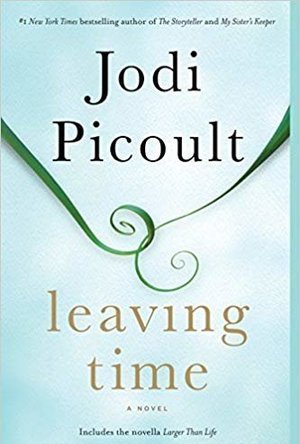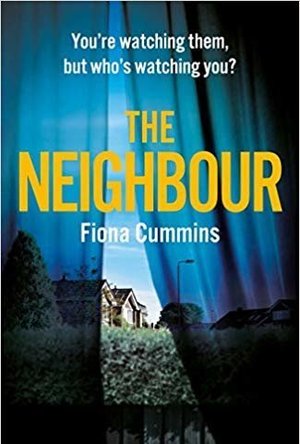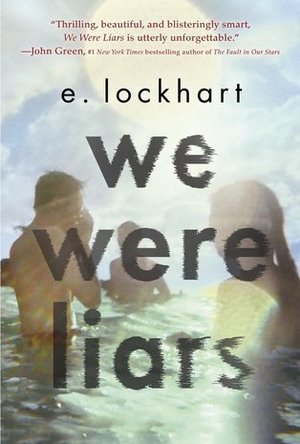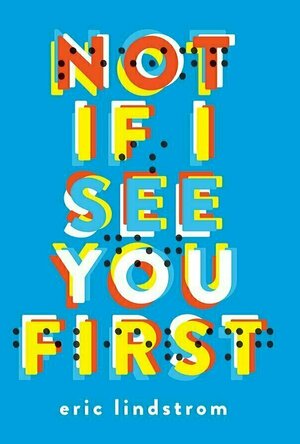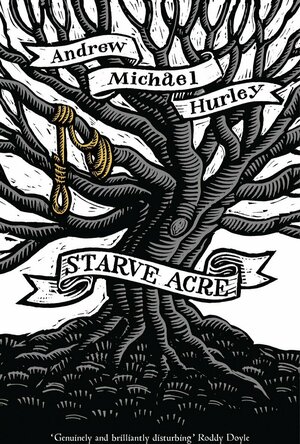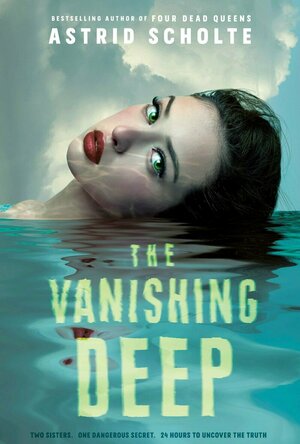Search
Search results
Rich, detailed, but strange narrative style at times!
I was sooo keen to read this - especially after watching the TV series, which I completely loved. For the most part, I wasn't disappointed. It's such a novel way of exploring Henry VIII's relationship with Anne Boleyn, not to mention the complex divorce proceedings that preceded it - through the eyes of Thomas Cromwell, the man partially responsible for orchestrating the whole thing.
Immediately, I was struck by Hilary Mantel's remarkable ability to capture life of that time - making it seem strangely familiar, despite the fact it was hundreds of years ago. She made it all seem so real, largely due to her richness of detail, not to mention expert knowledge of the era. The little notes of humour throughout are what really bring it to life - so often, history is treated with utmost seriousness, yet Mantel is absolutely correct - I'm sure people were cracking jokes and saying silly things in the Tudor era too!
The relationships were likewise beautifully illustrated, and the death of Cromwell's wife, genuinely moving. For me, this was one of the most impressive moments of the book, as Mantel captures grief so powerfully and yet so simply.
One thing I did find strange though - the way Mantel uses pronouns throughout the book. I pondered for ages about why it jarred on me every so often, and I think it's because the 3rd person narrative is so intimate, it almost feels like a 1st person in places. Then, when she uses 'he' again, rather than 'I', it is momentarily confusing. I found myself wondering what the book would have been like had she just told it in first person through Cromwell's eyes - my personal belief is that it might have worked better.
Also, although the richness of the detail was spectacular, there were times when I felt that it held up the narrative slightly. I appreciate her desire to capture every moment of these tumultuous historic events, but at times, I did find them a wee bit boring.
However, for the most part, I was really into this book, and loved the character of Cromwell to bits. A man from a humble background, unfailingly pragmatic and clever - fabulous stuff!
Immediately, I was struck by Hilary Mantel's remarkable ability to capture life of that time - making it seem strangely familiar, despite the fact it was hundreds of years ago. She made it all seem so real, largely due to her richness of detail, not to mention expert knowledge of the era. The little notes of humour throughout are what really bring it to life - so often, history is treated with utmost seriousness, yet Mantel is absolutely correct - I'm sure people were cracking jokes and saying silly things in the Tudor era too!
The relationships were likewise beautifully illustrated, and the death of Cromwell's wife, genuinely moving. For me, this was one of the most impressive moments of the book, as Mantel captures grief so powerfully and yet so simply.
One thing I did find strange though - the way Mantel uses pronouns throughout the book. I pondered for ages about why it jarred on me every so often, and I think it's because the 3rd person narrative is so intimate, it almost feels like a 1st person in places. Then, when she uses 'he' again, rather than 'I', it is momentarily confusing. I found myself wondering what the book would have been like had she just told it in first person through Cromwell's eyes - my personal belief is that it might have worked better.
Also, although the richness of the detail was spectacular, there were times when I felt that it held up the narrative slightly. I appreciate her desire to capture every moment of these tumultuous historic events, but at times, I did find them a wee bit boring.
However, for the most part, I was really into this book, and loved the character of Cromwell to bits. A man from a humble background, unfailingly pragmatic and clever - fabulous stuff!
Whatchareadin (174 KP) rated Leaving Time in Books
Apr 9, 2019
Jenna Metcalf is thirteen years old and more than anything, she wants to find her mother, Dr. Alice Metcalf. Alice is a doctor who studies the behavior of elephants, specifically, grief. She goes missing when Jenna is just three years old and there was a tragic accident at the Elephant Sanctuary where they lived and that her parents owned/worked. Jenna doesn't believe that her mother would have ever left her behind, so she enlists the help of Serenity Jones, a once famous psychic who helped to find missing people and Virgil Stanhope, a private detective, who was on the police force and was a part of the investigation of the accident at the Sanctuary. With their help, will Jenna be able to find her mother? And when she does, will she be disappointed by what she finds?
I have enjoyed reading Jodi Picoult novels for a long time. They always leave me with different kinds of emotions. Some happy, some sad, sometimes confused. Leaving Time was no exception. I felt a connection to each character. With Jenna, I felt sadness of the loss of her mother and her plight to find her. For Alice, a felt compassion for her work and the situation she was living in. For Serenity, I'm not quite sure my feelings about her, but she was a caring force in Jenna's life. For Virgil, it was pity, that he was unable to get his life together and accomplish his goals.
Listening to this book I was intrigued by the subject matter. Based on the idea that "an elephant never forgets" it was fascinating to learn about how elephants interact with humans and with each other, especially after they suffer a loss. A lot how we as humans grieve. This is another book that will make you think and keep you on your toes, covering subject matters of wildlife, mental illness and supernatural abilities. In the last 5% of the book there was a twist that I didn't see coming and it made me rethink everything I had just read/listened to. This is why Jodi Picoult is one of my favorites.
My favorite line from the book: "...there was a tear in the fabric I was made of and he was the only color thread that would match to stitch it back up."
I have enjoyed reading Jodi Picoult novels for a long time. They always leave me with different kinds of emotions. Some happy, some sad, sometimes confused. Leaving Time was no exception. I felt a connection to each character. With Jenna, I felt sadness of the loss of her mother and her plight to find her. For Alice, a felt compassion for her work and the situation she was living in. For Serenity, I'm not quite sure my feelings about her, but she was a caring force in Jenna's life. For Virgil, it was pity, that he was unable to get his life together and accomplish his goals.
Listening to this book I was intrigued by the subject matter. Based on the idea that "an elephant never forgets" it was fascinating to learn about how elephants interact with humans and with each other, especially after they suffer a loss. A lot how we as humans grieve. This is another book that will make you think and keep you on your toes, covering subject matters of wildlife, mental illness and supernatural abilities. In the last 5% of the book there was a twist that I didn't see coming and it made me rethink everything I had just read/listened to. This is why Jodi Picoult is one of my favorites.
My favorite line from the book: "...there was a tear in the fabric I was made of and he was the only color thread that would match to stitch it back up."
Billie Wichkan (118 KP) rated The Neighbour in Books
May 22, 2019
FOR SALE: A lovely family home with good-sized garden and treehouse occupying a plot close to woodland. Perfect for kids, fitness enthusiasts, dog walkers . . .
And, it seems, the perfect hunting ground for a serial killer.
On a hot July day, Garrick and Olivia Lockwood and their two children move into 25 The Avenue looking for a fresh start. They arrive in the midst of a media frenzy: theyd heard about the local murders in the press, but Garrick was certain the killer would be caught and it would all be over in no time. Besides, theyd got the house at a steal and he was convinced he could flip it for a fortune.
The neighbours seemed to be the very picture of community spirit. But everyone has secrets, and the residents in The Avenue are no exception.
After six months on the case with no real leads, the most recent murder has turned DC Wildeve Stantons life upside down, and now she has her own motive for hunting down the killer quickly.
Loved this book! Once I started reading I was gripped by the story and I just couldn't put it down.
This has to be one of the most cleverly plotted thrillers I've read in years with its twisty reveals, red herrings and ample misdirection, which throws you off the scent many times!
Every time I thought I had it; Bam; hit the floor as the rug was pulled out from under me.
This is a twisty, creepy thriller with a likeable detective in the form of Wildeve Stanton who works hard to find the killer while battling with her own grief.
On The Avenue, behind every door hides a secret, and behind one of these doors is a serial killer that has been living in plain sight. But which door? The chapters give a snapshot view into each of the ongoing lives, into each of their secrets, slowly building up to an emotional terrifying conclusions.
A very chilling enjoyable read that kept from going to bed as I would not stop reading until I got to the end!
Highly Highly Recommend and would give more than 5 stars if I could!
Thank you to the author Fiona Cummins, publishers Pan Macmillan and NetGalley for my digital advance copy of the book in exchange for an honest and independent review.
And, it seems, the perfect hunting ground for a serial killer.
On a hot July day, Garrick and Olivia Lockwood and their two children move into 25 The Avenue looking for a fresh start. They arrive in the midst of a media frenzy: theyd heard about the local murders in the press, but Garrick was certain the killer would be caught and it would all be over in no time. Besides, theyd got the house at a steal and he was convinced he could flip it for a fortune.
The neighbours seemed to be the very picture of community spirit. But everyone has secrets, and the residents in The Avenue are no exception.
After six months on the case with no real leads, the most recent murder has turned DC Wildeve Stantons life upside down, and now she has her own motive for hunting down the killer quickly.
Loved this book! Once I started reading I was gripped by the story and I just couldn't put it down.
This has to be one of the most cleverly plotted thrillers I've read in years with its twisty reveals, red herrings and ample misdirection, which throws you off the scent many times!
Every time I thought I had it; Bam; hit the floor as the rug was pulled out from under me.
This is a twisty, creepy thriller with a likeable detective in the form of Wildeve Stanton who works hard to find the killer while battling with her own grief.
On The Avenue, behind every door hides a secret, and behind one of these doors is a serial killer that has been living in plain sight. But which door? The chapters give a snapshot view into each of the ongoing lives, into each of their secrets, slowly building up to an emotional terrifying conclusions.
A very chilling enjoyable read that kept from going to bed as I would not stop reading until I got to the end!
Highly Highly Recommend and would give more than 5 stars if I could!
Thank you to the author Fiona Cummins, publishers Pan Macmillan and NetGalley for my digital advance copy of the book in exchange for an honest and independent review.
Kristy H (1252 KP) rated We Were Liars in Books
Feb 13, 2018
Cadence (Cady) grows up slightly insulated from the world - the first grandchild born to the weathly Harris and Tupper. Her mother is one of the Harris' three daughters, all of whom have their own children and each of whom vie for their father's affection (and eventual inheritance). During the summer's, Cady stays on a private island with her family, growing up with her cousins - including a group they call the Liars, composed her herself, her cousins Mirren and Johnny, and Johnny's friend, Gat. Thick as thieves during the summer, it seems like nothing can separate the quartet - but is that really true?
So, this is a tough one to review. I'd heard a lot of glowing things and this had a ton of positive reviews from my friends. Even my stepmom (who lent the book to me) liked it. So maybe my expectations were just too high when I read it, but I felt "eh." That's not to say that I didn't find the big *ahh spoilery ending* to be amazing and shocking. I did, and I felt wowed and, yes, a bit amazed, and did sort of want to re-read things in that context.
But, I don't think I could. Because, overall, I found the book kind of annoying. I certainly don't think you have to like every character you read about, but good grief, I just found Cady whiny and deplorable. She and her entitled cousins were so irritating. Johnny's friend, Gat, attempts to bring them back to reality (Gat's heritage is Indian, meaning Cady's grandfather despises him and also forbids Cady's aunt to marry Gat's uncle, or risk being disinherited), but he definitely fails. The aunts are selfish and petty and only care about their inheritance, not their children. Lockhart's prose is lovely in many places, but in others just confusing - the metaphors and use of language to refer to Cady's illness (she suffers from migraines and such) is borderline confusing.
The ending was jarring, yes (don't read any spoilers - it won't be worth it), but the rest of the book didn't seem to be matched to it. I didn't see the point of all Cady's whining and the family squabbles. Just because the family was rich, they weren't interesting, nor mysterious. Perhaps I missed the larger point, but I was left shaking my head.
So, this is a tough one to review. I'd heard a lot of glowing things and this had a ton of positive reviews from my friends. Even my stepmom (who lent the book to me) liked it. So maybe my expectations were just too high when I read it, but I felt "eh." That's not to say that I didn't find the big *ahh spoilery ending* to be amazing and shocking. I did, and I felt wowed and, yes, a bit amazed, and did sort of want to re-read things in that context.
But, I don't think I could. Because, overall, I found the book kind of annoying. I certainly don't think you have to like every character you read about, but good grief, I just found Cady whiny and deplorable. She and her entitled cousins were so irritating. Johnny's friend, Gat, attempts to bring them back to reality (Gat's heritage is Indian, meaning Cady's grandfather despises him and also forbids Cady's aunt to marry Gat's uncle, or risk being disinherited), but he definitely fails. The aunts are selfish and petty and only care about their inheritance, not their children. Lockhart's prose is lovely in many places, but in others just confusing - the metaphors and use of language to refer to Cady's illness (she suffers from migraines and such) is borderline confusing.
The ending was jarring, yes (don't read any spoilers - it won't be worth it), but the rest of the book didn't seem to be matched to it. I didn't see the point of all Cady's whining and the family squabbles. Just because the family was rich, they weren't interesting, nor mysterious. Perhaps I missed the larger point, but I was left shaking my head.
Louise (64 KP) rated The Square Root of Summer in Books
Jul 2, 2018
One word really describes this book…. confusing! for the majority of the book I didn’t really know what was going on. I think the state of confusion was on my behalf as I am not a massive fan of physics and unable to get my head around it.
The Square Root of Summer is Harriet Reuter Hapgood’s debut novel, the story is told from the perspective of Gottie. A year ago her life was pretty good, she had an amazing family, a boyfriend and decent friends and then it shattered all around her. It’s been a year since Gottie’s grandfather died, the family are devastated and have slowly drifted apart as they come to terms with their loss. To make things worse her so-called ‘boyfriend’ left for University/College and the great friends she had are continuing on with their lives without Gottie.
When she receives news that her next door neighbour/best friend Thomas is coming back to England to live after moving to Canada things start happening to Gottie that she just can’t explain.
Gottie is a science geek and loves physics, so when she starts having flashbacks of everything that happened the previous year before Grey’s(Grandfather) death, she tries to understand what is happening to her. Gottie believes that she is traveling back in time through wormholes and vortexes (all that physicy stuff) and soon the summer becomes a mission to find out if you can really time travel.
This book is a coming of age story that includes grief, families,friends, and love. The book shows how much heartbreak a death in the family can cause and that something stressful (major life event) will tip you over the edge. Wormholes and Vortexes were Gottie’s coping mechanism, she enjoyed physics and that’s what helped her. With these flashback’s/time travelling (you decide) it enabled her to start talking to her family and friends again, also finding herself and become the person she wanted to be.
This is a great debut novel set in Norfolk, England. Hapgood managed to include aspects of her German heritage into the book, the family dynamics and characters are complex and three-dimensional, there is bookstores and baking and also to top it off there is a cute romance.What more could you ask for?
I rated this 3 of 5 stars
*I received a copyofthis book from Netgalley and the publisher in exchange for an honest review*
The Square Root of Summer is Harriet Reuter Hapgood’s debut novel, the story is told from the perspective of Gottie. A year ago her life was pretty good, she had an amazing family, a boyfriend and decent friends and then it shattered all around her. It’s been a year since Gottie’s grandfather died, the family are devastated and have slowly drifted apart as they come to terms with their loss. To make things worse her so-called ‘boyfriend’ left for University/College and the great friends she had are continuing on with their lives without Gottie.
When she receives news that her next door neighbour/best friend Thomas is coming back to England to live after moving to Canada things start happening to Gottie that she just can’t explain.
Gottie is a science geek and loves physics, so when she starts having flashbacks of everything that happened the previous year before Grey’s(Grandfather) death, she tries to understand what is happening to her. Gottie believes that she is traveling back in time through wormholes and vortexes (all that physicy stuff) and soon the summer becomes a mission to find out if you can really time travel.
This book is a coming of age story that includes grief, families,friends, and love. The book shows how much heartbreak a death in the family can cause and that something stressful (major life event) will tip you over the edge. Wormholes and Vortexes were Gottie’s coping mechanism, she enjoyed physics and that’s what helped her. With these flashback’s/time travelling (you decide) it enabled her to start talking to her family and friends again, also finding herself and become the person she wanted to be.
This is a great debut novel set in Norfolk, England. Hapgood managed to include aspects of her German heritage into the book, the family dynamics and characters are complex and three-dimensional, there is bookstores and baking and also to top it off there is a cute romance.What more could you ask for?
I rated this 3 of 5 stars
*I received a copyofthis book from Netgalley and the publisher in exchange for an honest review*
Hazel (1853 KP) rated Not If I See You First in Books
Dec 14, 2018
3.5 Stars
<i>This eBook was provided by the publisher via NetGalley in exchange for an honest review </i>
Eric Lindstrom’s ironically named <i>Not If I See You First</i> is a story narrated by a blind teenaged girl, Parker Grant. Parker has had to deal with a lot in her short life - the accident that killed her mother and left her blind; the recent death of her father; however she seems to be coping fine. But there is one incident she will never get over, one person she will never forgive.
Being blind, Parker has memorized voices, the number of steps to get from one place to another and the layout of the areas she frequents. So when her high school merges with another there is a lot of unfamiliarity to get used to. What she is not prepared for is the reappearance of Scott, a boy who broke her heart a couple of years ago.
Parker’s coping mechanisms, both with blindness and grief, result in a hardened personality, unfeeling and caring. She has become unintentionally selfish. Literally and figuratively blind to everyone else’s emotions. Realising this, Parker tries to turn things around, but can her friends forgive her? Can Scott?
It is interesting reading from the point of view of a blind person. For a start there is a lack of physical description. It is difficult to conjure up a complete image of the various settings, almost as if the reader is blind as well. It also challenges stereotypical ideals. Just because someone is blind does not mean they cannot look after themselves.
Despite her hostile demeanor, Parker is an admirable character. She does not let her disability hold her back and sticks with the things she is passionate about, for instance running.
The problem I had with this novel is that Parker seemed to care more about her history with Scott than she did with her father’s death a couple of months previously. I am aware there was a point to this, but even after Parker’s emotions begin to flow she is still more focused on romantic relationships than anything else.
Targeted at young adults, <i>Not If I See You First</i> will appeal to those that enjoy contemporary romance. Nevertheless, be aware that it has an ambivalent ending, rather than the happily-ever-after that you may be yearning for.
<i>This eBook was provided by the publisher via NetGalley in exchange for an honest review </i>
Eric Lindstrom’s ironically named <i>Not If I See You First</i> is a story narrated by a blind teenaged girl, Parker Grant. Parker has had to deal with a lot in her short life - the accident that killed her mother and left her blind; the recent death of her father; however she seems to be coping fine. But there is one incident she will never get over, one person she will never forgive.
Being blind, Parker has memorized voices, the number of steps to get from one place to another and the layout of the areas she frequents. So when her high school merges with another there is a lot of unfamiliarity to get used to. What she is not prepared for is the reappearance of Scott, a boy who broke her heart a couple of years ago.
Parker’s coping mechanisms, both with blindness and grief, result in a hardened personality, unfeeling and caring. She has become unintentionally selfish. Literally and figuratively blind to everyone else’s emotions. Realising this, Parker tries to turn things around, but can her friends forgive her? Can Scott?
It is interesting reading from the point of view of a blind person. For a start there is a lack of physical description. It is difficult to conjure up a complete image of the various settings, almost as if the reader is blind as well. It also challenges stereotypical ideals. Just because someone is blind does not mean they cannot look after themselves.
Despite her hostile demeanor, Parker is an admirable character. She does not let her disability hold her back and sticks with the things she is passionate about, for instance running.
The problem I had with this novel is that Parker seemed to care more about her history with Scott than she did with her father’s death a couple of months previously. I am aware there was a point to this, but even after Parker’s emotions begin to flow she is still more focused on romantic relationships than anything else.
Targeted at young adults, <i>Not If I See You First</i> will appeal to those that enjoy contemporary romance. Nevertheless, be aware that it has an ambivalent ending, rather than the happily-ever-after that you may be yearning for.
ClareR (6074 KP) rated Starve Acre in Books
Oct 28, 2019 (Updated Oct 28, 2019)
Prepare for a tense, rather scary read!
Starve Acre was a novel that had me wondering whether I’d picked up the right book. I thought I’d chosen a book about a couple struggling to deal with the death of their young son, but by about a third of the way through, I was so gripped and jumping at shadows that I couldn’t decide whether this was a thriller or a horror! It is, I’ve decided, my favourite kind of scary book. You’re never quite sure what you’re supposed to be scared of, but the hairs standing up on the back of your neck would tell you that whatever it is, it’s THERE on the page in front of you! I should’ve guessed that it would be like this. I mean, who lives in a house called Starve Acre and doesn’t expect something to go wrong? And that cover! Jo McLaren has done an amazing piece of art - it’s what made me want to read it, after all.
Children are always the ones that seem to be more sensitive to the supernatural, and Richard and Juliette’s son Ewan is no exception. Before his death, he talks of a menacing figure called Jack Grey, who tells him to do certain things - none of which make him popular in the village. Ewan becomes more and more unhappy, and his behaviour becomes more erratic.
After Ewan’s death, Richard and Juliette’s grief becomes suffocating - I could feel it coming off the page. Juliette’s sister expects her to pull herself together, but Juliette is convinced that Ewan is still in the house. So she invites The Beacons, a group of Spiritualists, to come and contact him and put him to rest. And this is where it starts to get really macabre. If I could have read this with my eyes shut, I would have. The fact that this isn’t written in your stereotypical ‘horror story’ fashion, is what makes it truly unsettling. I was never sure what was real and what was some sort of mass hallucination.
I just loved this book, and it’s going on my Keeper Shelf(yes, it has capital letters). Highly recommended to be read during daylight hours only, unless you like being chilled to the bone!
Many thanks to NetGalley, the publisher and Readers First for my copy of this book to read and review.
Children are always the ones that seem to be more sensitive to the supernatural, and Richard and Juliette’s son Ewan is no exception. Before his death, he talks of a menacing figure called Jack Grey, who tells him to do certain things - none of which make him popular in the village. Ewan becomes more and more unhappy, and his behaviour becomes more erratic.
After Ewan’s death, Richard and Juliette’s grief becomes suffocating - I could feel it coming off the page. Juliette’s sister expects her to pull herself together, but Juliette is convinced that Ewan is still in the house. So she invites The Beacons, a group of Spiritualists, to come and contact him and put him to rest. And this is where it starts to get really macabre. If I could have read this with my eyes shut, I would have. The fact that this isn’t written in your stereotypical ‘horror story’ fashion, is what makes it truly unsettling. I was never sure what was real and what was some sort of mass hallucination.
I just loved this book, and it’s going on my Keeper Shelf(yes, it has capital letters). Highly recommended to be read during daylight hours only, unless you like being chilled to the bone!
Many thanks to NetGalley, the publisher and Readers First for my copy of this book to read and review.
Ali A (82 KP) rated The Vanishing Deep in Books
Mar 6, 2020
The Great Wave destroyed the planet five hundred years ago and since then, the surface has been covered in water. Tempest was born into a world of water. Tempest’s sister Elysea drowned holding the secret to their parents’ death and Tempest wants answers. A research facility on the island of Palindromena can revive the dead for 24 hours and Tempest saved every Note she possibly could for two years to do so.
The reunion isn’t what Tempest thought it would be and instead, Elysea insists she’s innocent and convinces her sister to break her out of the facility so they together can find the answers about their parents. But it won’t be an easy journey, especially since they have the Warren, the person in charge of Elysea’s revival, on their trail to return her back before the 24 hours are up.
The Vanishing Deep’s cover is what drew me in to begin with as well as the world the author created. Astrid Scholte does an amazing job at creating this world of water and the floating islands that people live in. A part of me wishes we were able to see more of the day to day life instead of small glimpses here and there simply because the world sounds so interesting.
Scholte has a unique ability to create multi-dimensional, realistic characters that you can’t help but care for. My heart ached for Tempest and Lor throughout the whole book and I kept reading to find out if they get their happy endings or not. Having the chapters be in both Lor’s and Tempest’s points of view gives the reader a more in depth knowledge as to what’s happening, especially since during some parts, a character might be viewing things slightly differently due to grief or past experiences.
I thoroughly enjoyed the twists, turns, and thrills this book had. There were so many surprises that it made it hard for me to put down once I got to reading it. This novel is full of plot twists, both big and small that will have you turning pages upon pages until there is no more left. I would recommend this book to any fantasy lover out there. I am absolutely going to check out more of Astrid Scholte’s other novels.
*Thank you BookishFirst and Putnam’s Sons Books for Young Readers for the ARC of this book in exchange for an honest review
The reunion isn’t what Tempest thought it would be and instead, Elysea insists she’s innocent and convinces her sister to break her out of the facility so they together can find the answers about their parents. But it won’t be an easy journey, especially since they have the Warren, the person in charge of Elysea’s revival, on their trail to return her back before the 24 hours are up.
The Vanishing Deep’s cover is what drew me in to begin with as well as the world the author created. Astrid Scholte does an amazing job at creating this world of water and the floating islands that people live in. A part of me wishes we were able to see more of the day to day life instead of small glimpses here and there simply because the world sounds so interesting.
Scholte has a unique ability to create multi-dimensional, realistic characters that you can’t help but care for. My heart ached for Tempest and Lor throughout the whole book and I kept reading to find out if they get their happy endings or not. Having the chapters be in both Lor’s and Tempest’s points of view gives the reader a more in depth knowledge as to what’s happening, especially since during some parts, a character might be viewing things slightly differently due to grief or past experiences.
I thoroughly enjoyed the twists, turns, and thrills this book had. There were so many surprises that it made it hard for me to put down once I got to reading it. This novel is full of plot twists, both big and small that will have you turning pages upon pages until there is no more left. I would recommend this book to any fantasy lover out there. I am absolutely going to check out more of Astrid Scholte’s other novels.
*Thank you BookishFirst and Putnam’s Sons Books for Young Readers for the ARC of this book in exchange for an honest review

DOCTOR INSTA: Consult Online
Medical
App
KEY NOTES: • 5 star ratings by Times Of India, Zee, NDTV and many others • Get 30% OFF on your...
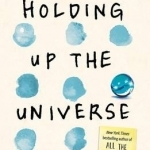
Holding Up the Universe
Book
From the author of the New York Times bestseller All the Bright Places comes a heart-wrenching story...

